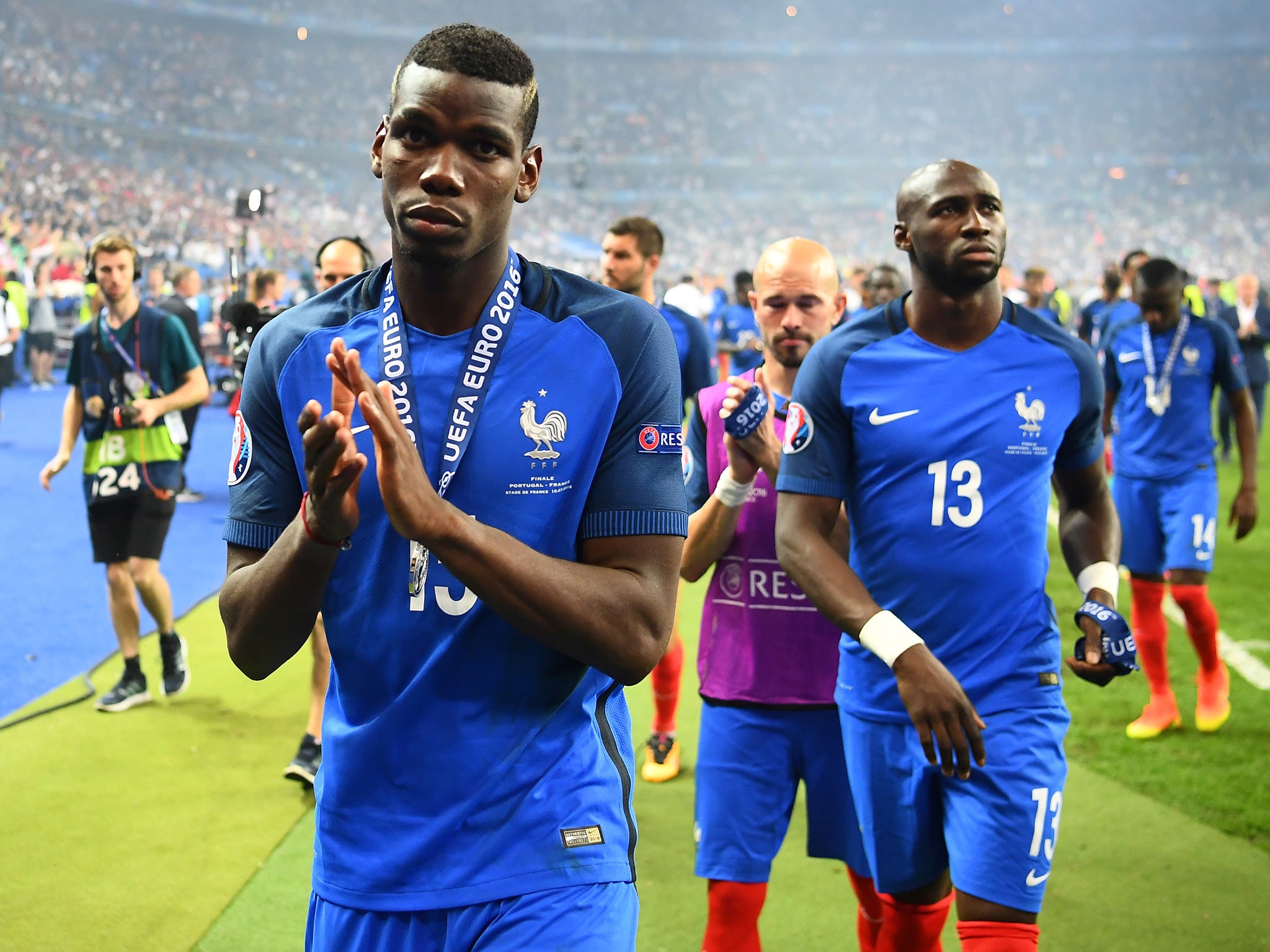Manchester United transfer news: Sign Paul Pogba, but don't be annexed by agents forever
United must be careful that, when trying to buy top talent, they do not leave the middle men holding all the cards

Your support helps us to tell the story
From reproductive rights to climate change to Big Tech, The Independent is on the ground when the story is developing. Whether it's investigating the financials of Elon Musk's pro-Trump PAC or producing our latest documentary, 'The A Word', which shines a light on the American women fighting for reproductive rights, we know how important it is to parse out the facts from the messaging.
At such a critical moment in US history, we need reporters on the ground. Your donation allows us to keep sending journalists to speak to both sides of the story.
The Independent is trusted by Americans across the entire political spectrum. And unlike many other quality news outlets, we choose not to lock Americans out of our reporting and analysis with paywalls. We believe quality journalism should be available to everyone, paid for by those who can afford it.
Your support makes all the difference.No imagination is required to sense how Sir Alex Ferguson might feel about Paul Pogba’s agent Mino Raiola potentially emerging £30m richer from his cut of a deal returning the French player to Old Trafford from Juventus, four years after he left.
“There are one or two football agents I do not like and Mino Raiola is one of them,” Ferguson said last year. “I distrusted him from the moment I met him.” Pogba was 18 when Manchester United found that Raiola had appeared on the scene and, as Ferguson viewed it, “been able to ingratiate himself with Paul and his family.” The club had the player under a three-year contract with a one-year renewal option they were keen to sign but the first meeting after he changed representatives was “a fiasco”, the then manager said. “From then our goose was cooked. He [Raiola] and I were like oil and water.”
United have already agreed to pay a 34-year-old Zlatan Ibrahimovic, another of Raiola’s clients, upwards of £200,000 a week to sign. And then there is the Armenian Henrikh Mkhitaryan – another of Raiola’s clients, signed by United for around £30m. That one club may end the summer with such a vast volume of their business put into the hands of one agent is disquieting – and only goes to show how Ferguson’s influence has receded. But it also reveals how inadequate an infrastructure they were left with for the transfer market business when Ferguson left in the first place.
In his day, transfer targets were agreed and concluded on the basis of a mutual understating with one of the loose network of scouts Ferguson had built up and felt he could trust. Those left to pick up the pieces in the summer of 2011 found the lack of a structure difficult. It has been described by one as a “black box” - a loose, unfathomable system of agreements and communications which you dug around in for a sense of coherence and generally didn’t find one.
Paying £30m to an agent is what happens when you are not equipped with the modern apparatus of the market: five-year advance planning systems, with due diligence undertaken and updated on emerging talents from all corners of the world; as well as the resources to move fast when a new name materialises from outside of the radar. When these do not exist, agents – whose role in the market is actually invaluable - hold so many cards that it feels like an annexation.
This is exactly how it was for Manchester City from 2009, when they had all the money in the world, figuratively speaking, and needed to get places in a hurry. They got Gareth Barry from Liverpool's clutches by literally putting him in a cab from Dubai to Abu Dhabi in 2009. They tolerated the sneering first response of Yaya Touré's agent - "Why should he leave Barcelona for you?" - during the initial meeting in Rome in 2010. The world’s elite players were not so sure who they were signing for - a problem United do not have.
It was when City began securing some of the players they were looking for to make a statement – Carlos Tevez, Yaya Toure and David Silva – that they put systems in place to evaluate and plan the future purchase of players. Money has always talked for City. But when they tried to sign Alexis Sanchez in the summer of 2011 and started getting the run-around – because Sanchez only had eyes for Barcelona at the time – they had other plates spinning. Sergio Aguero, a 23-year-old keen to leave Atletico Madrid, whose agent happened to be with City's player acquisition staff at the M56 Marriott hotel near Manchester. Juventus wanted Aguero too, so City pounced, closing the Aguero deal immediately and telling their senior man in Spain to quit trying to call the Sanchez camp. Such is the value of coordination and a back-up plan.
City were also willing to spend a lot of money on Pogba when they had him in their sights last summer but when the price reached 100 million euros, they said ‘thanks but no thanks’ and walked away. He would be a huge asset to United now, delivering something intangibly bigger than a stronger midfield at a time when they need it. But a means of building and shaping the squad beyond the here and now is more significant still. If United can’t find a way to do that, they risk years of unadulterated spending and waste, outsourcing their transfer business to those individuals with stars for hire, generally knowing the price of everything and the value of nothing.
Join our commenting forum
Join thought-provoking conversations, follow other Independent readers and see their replies
Comments